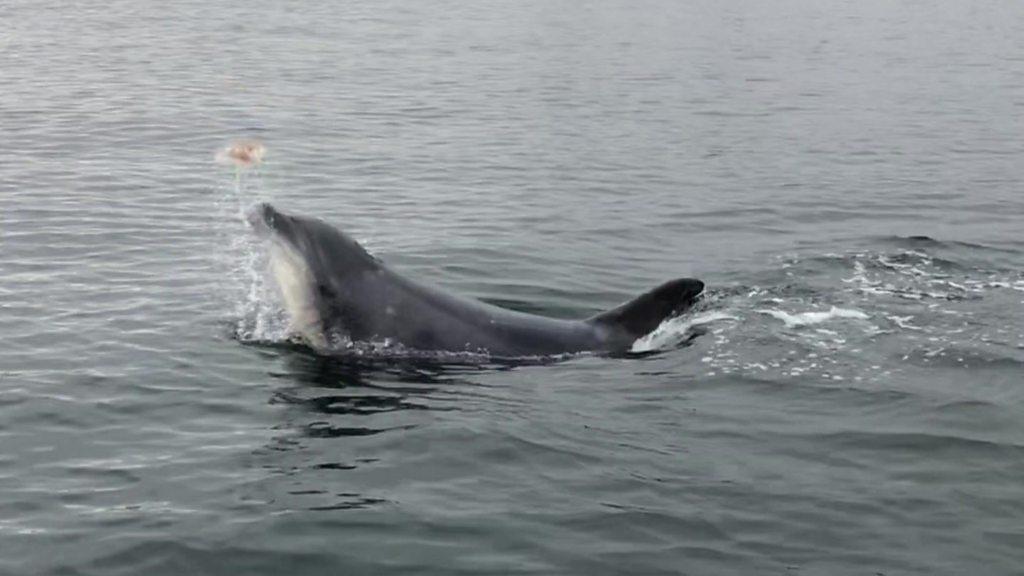Protecting butterflies can boost mental health
- Published
- comments
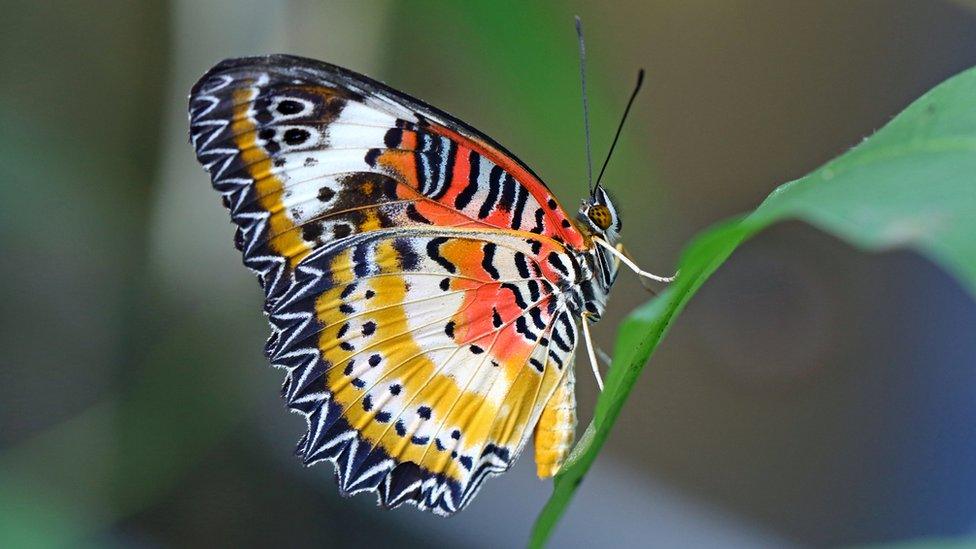
The charity, Butterfly Conservation, is urging people to help butterflies and moths this spring.
The project, which aims to prevent further declines in species of butterflies and moths, could boost the mental health of those who take part.
It comes after research found last year's lockdown saw an increase in the amount of people spending time in nature.
The University of Cumbria study revealed 83 percent of respondents said they had taken time to notice butterflies and bees.
Why do butterflies need protecting?
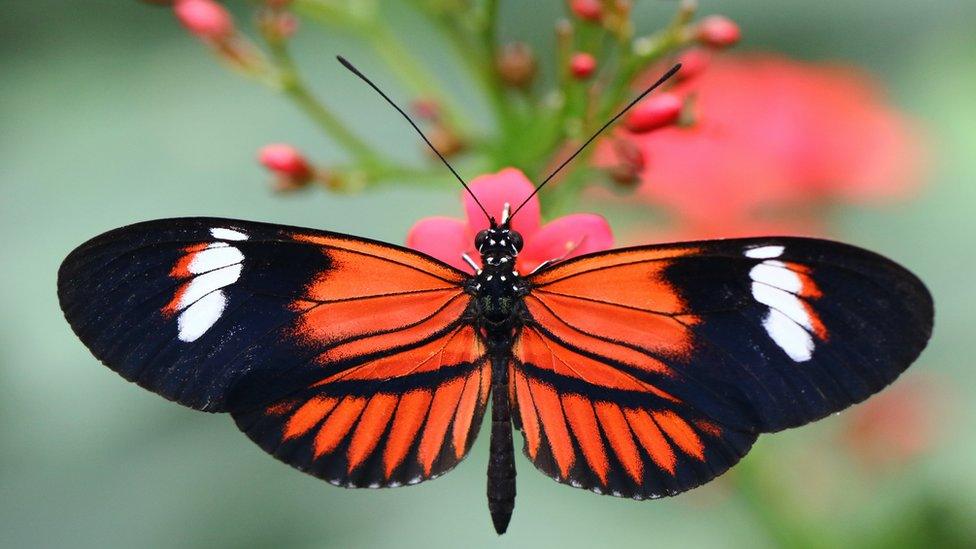
Butterfly Conservation warned that 76 percent of the UK's butterfly species have declined over the last 40 years while numbers of the UK's larger moths have declined by more than 30 percent in the last 50 years.
The charity says the continuing decline of butterflies and moths is worrying for wildlife as a whole.
As well as being important pollinators, the insects are part of ecosystems which support birds and mammals.
The project aims to provide people with tools and information that can help boost the numbers of pollinators.
Dr Kate Dent, director of engagement at Butterfly Conservation, said: "As spring finally arrives, we can all do our little bit towards helping butterflies, wherever we live, in the knowledge that it's helping our mental health too.
"Whether it's caring for herb seedlings in a window box, planting wildflowers in your garden or learning afresh how to breathe and feel the gift of nature in our local green spaces."
How can protecting butterflies boost our mental health?
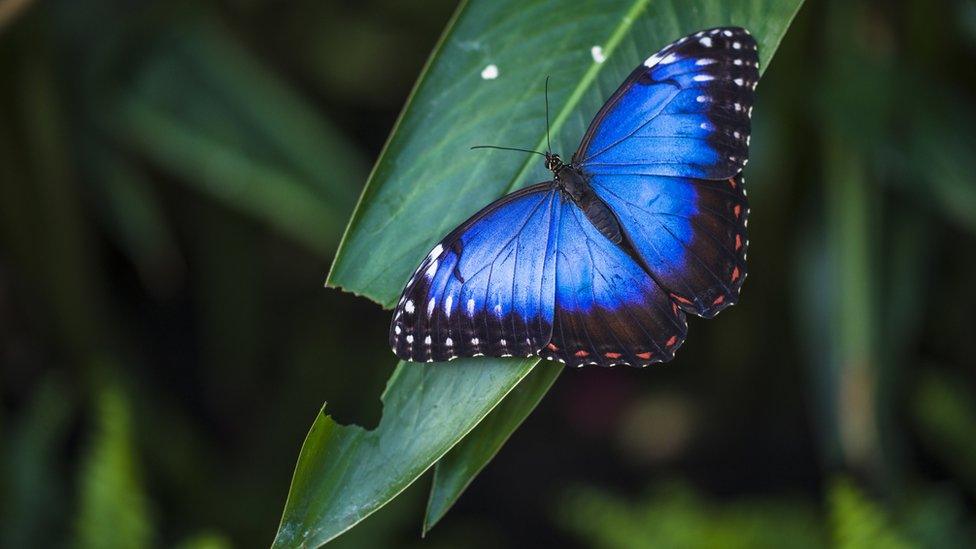
A short amount of time spent in nature can reduce stress and make people feel happier and more energised, according to Butterfly Conservation.
Dr Amir Khan, Butterfly Conservation ambassador, said: "As we head into spring again, we must remember how our increased connectedness with nature during the warmer months of last year really helped us.
"Like a butterfly that exists as a tiny egg over winter, the promise of spring has been with us during the winter months and now it's back there's plenty we can do to feel inspired by and part of the wildlife around us."
- Published12 April 2021
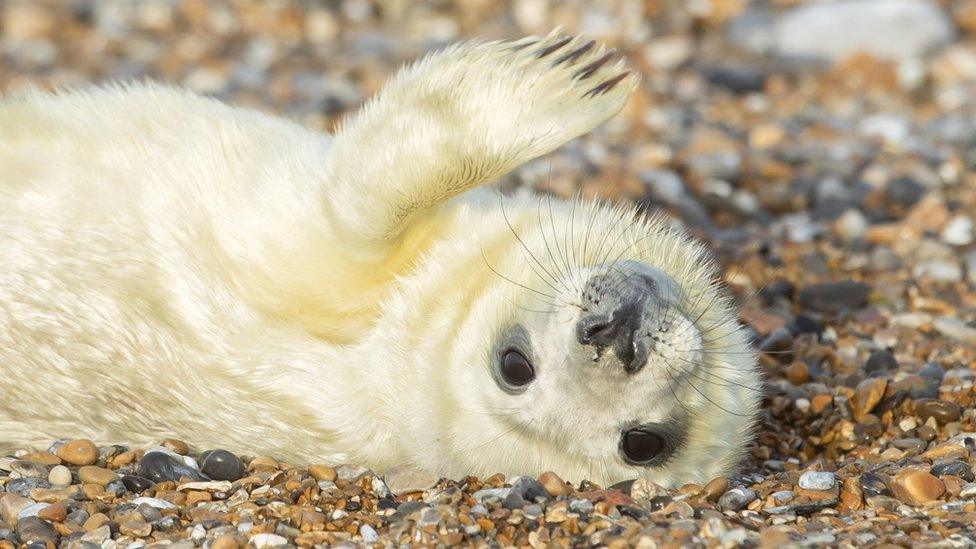
- Published12 April 2021
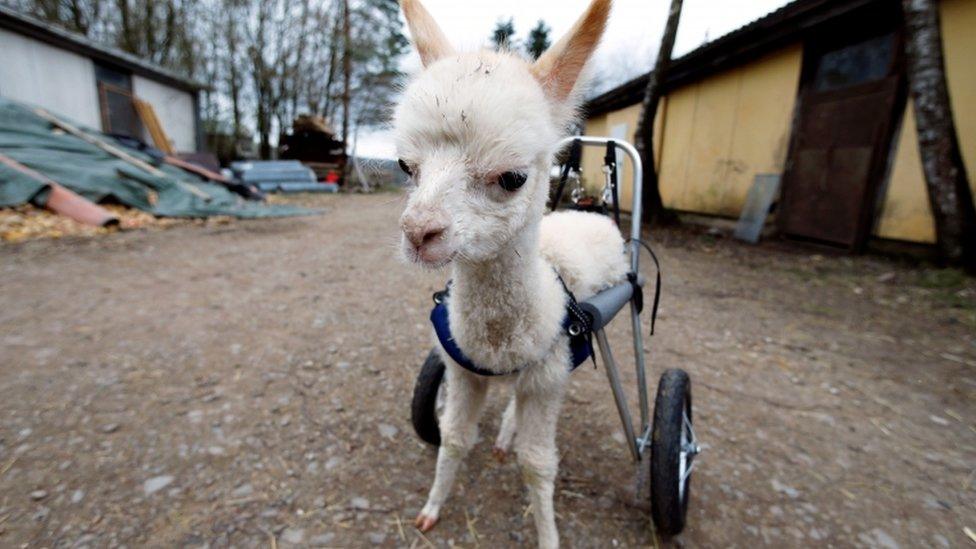
- Published12 August 2019
